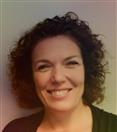GET INVOLVED!
There are plenty of opportunities for you to build your CV and gain valuable experience in the programme and in academic life.
Student Assistantships
Each year, a number of student assistantships are available in the department, for the RMA, the MA Literature Today, and the BA Literary Studies. As a student assistant, you will help organise events, meetings, and the Open Days, handle communication tasks and small research assignments.
Curriculum Committee
Another way to be actively involved is by being the CLS student representative on the Curriculum Committee, which is tasked with reviewing course evaluations, discussing the quality of the programmes, and making recommendations for improvement.
If you are interested in becoming a student assistant or a student representative, you can contact the programme coordinator Kári Driscoll (K.Driscoll@uu.nl).
Graduate Student Journals
There are also various opportunities available for CLS students to become involved in academic publishing and editing, in particular through the two independent UU graduate journals Frame and Junctions. Both journals are run entirely by graduate students, and CLS students have traditionally played an active role as editors and authors.
Humanities Graduate School Conference
You are encouraged to participate in the annual Humanities Graduate School Conference, which is organised by and for Research Master’s and PhD students at the Faculty of Humanities. The conference provides a venue for interdisciplinary exchange within the Graduate School. Furthermore, the conference allows graduate students to obtain valuable experience in presenting and discussing their own work.
Research Master’s students are also encouraged to participate in international conferences. To stimulate this participation, the Graduate School of Humanities awards several Conference Grants over the course of the year.
If you are interested in co-organising the Humanities Graduate School Conference and/or if you want more information about the Conference Grants, send an email to the Graduate School of Humanities: GSHumanities@uu.nl
■ ■ ■
S USANNE K NITTEL
Associate Professor of Comparative Literature. Research interests: memory and trauma, disability studies and posthumanism.
■ ■ ■
A NNA P OLETTI
Associate Professor of English Language and Culture. Research interests: life writing, mediation and materially, youth cultures, contemporary print cultures and digital literatures.
■ ■ ■
M ICHELA B ORZAGA
Assistant Professor of Comparative Literature. Research interests: critical theory, memory and trauma studies, poetics, and (post)colonial thought.
■ ■ ■
F LORE J ANSSEN
Assistant Professor of Comparative Literature. Research interests: literature and social, political and economic history in the 19th century.
■ ■ ■
M ONICA J ANSEN
Assistant Professor of Italian Literature. Research interests: contemporary Italian literature, modernism and postmodernism, conflict, precarity, transnational mobilities.
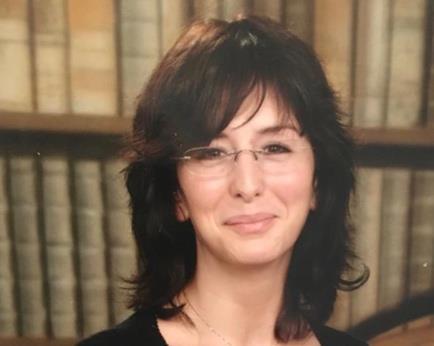

■ ■ ■
A LEKSANDR P RIGOZHIN
Lecturer in English Language and Culture. Research interests: modernist literature, media studies and affect theory.
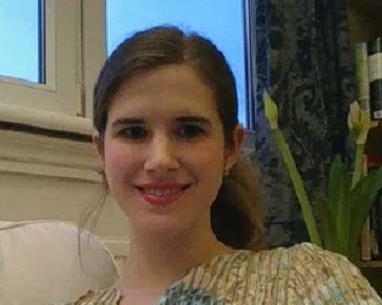
■ ■ ■
D AVID P ASCOE
Professor of English Literature and Culture. Research interests: 20th century British literature, especially modernism, and media theory.
■ ■ ■
B IRGIT K AISER
Associate Professor of Comparative Literature. Research interests: transcultural and post/colonial constellations of power, un/translatability, and the materiality of language.
■ ■ ■
K IENE B RILLENBURG W URTH Professor of Literature and Comparative Media. Research interests: literature and new media, aesthetics, materiality, creativity, medical humanities

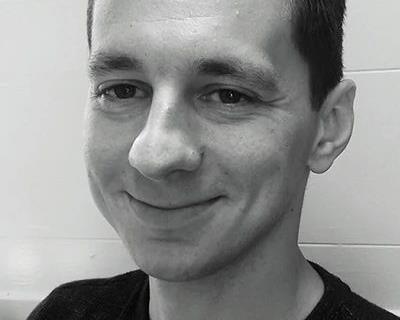
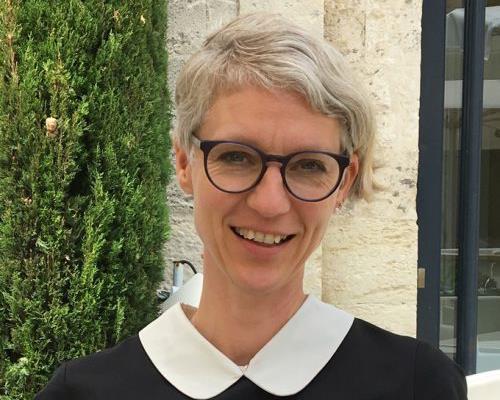
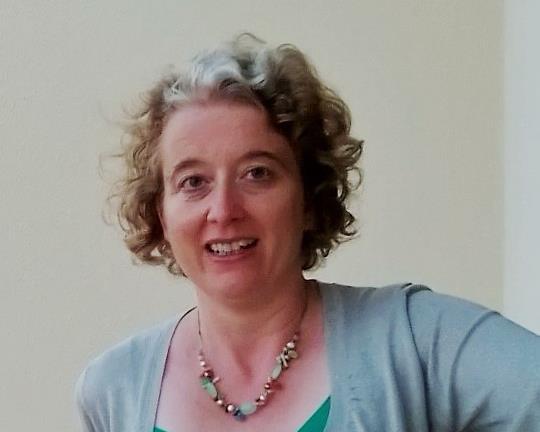
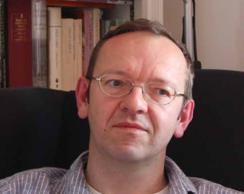
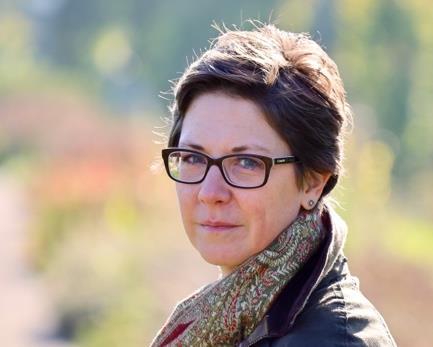
THE TEAM
THIS PROGRAMME
The RMA in Comparative Literary Studies offers advanced training in the study of modern and contemporary literature from a transnational perspective. The Utrecht programme is distinguished by an innovative approach that involves comparison across languages, media, and cultural practices.
This RMA offers an excellent balance between critical theoretical perspectives on the nature of literature, its past and its future, and specialist knowledge of particular fields and language areas. As a student in this programme, you will learn to analyse how literature interacts with (and reflects on) its cultural and social environment against the background of globalisation and new media technologies.
Our signature comparative approach to literature and culture centres on four core themes, represented in the four core courses you will take in your first year:
Interdiscursivity: how does literature relate to other discourses (e.g. philosophy, anthropology, history) and other forms of knowledge (e.g. the social and natural sciences)? Core course: Thinking Literature.
Transculturality: how does literature reflect and negotiate cultural differences and operate across national borders? Core course: Literature in the Postcolony. Mediality: how are literary phenomena adapted to other media and how has modern literature changed in response to new media technologies?
Core course: Media Materialities.
Cultural Memory: how does literature interact with other cultural practices in producing shared narratives about the collective past? Core course: Cultural Memory and Citizenship.
Our highly structured programme offers intensive training in current methods in literary research, including digital humanities, and knowledge of the most important current theories and approaches. You will practice formulating research questions and conducting research in a small-scale collaborative setting. You will develop skills in research and interpretation, and in presenting and editing results to a professional standard, and you will receive thorough training in research design.
EDUCATIONAL PHILOSOPHY
We are a small and international community of scholars and students. Class sizes in core courses and electives are usually between 15 and 25. As a result, teaching is interactive and intensive. We place a great deal of emphasis on seminar-style discussion and student-led learning, which allows for a strong group dynamic and fosters independence and cooperation. Students are encouraged to participate actively in seminars in the form of response papers and presentations as well as in the chairing of discussions. In the masterclasses and tutorials, students have the opportunity to work closely with senior researchers, individually or in groups of two to four, which is a crucial component in becoming a researcher.
COMPARATIVE LITERATURE AND SOCIETY
The emphasis in this research master’s programme lies on the role and place of literature as a cultural medium in a broader social, historical, and political context. This is reflected in the four core themes of the programme, all of which have centrally to do with key questions in contemporary society, e.g. the importance of narrative in shaping our understanding of the past (cultural memory), the role of representation and aesthetics in understanding different cultures (transculturality), the place of literature in a rapidly changing media landscape (mediality), and the status of literature – and of

COURSE PLANNER: You will find more information on this programme’s courses in the Course Planner: https://cursusplanner.scien ce.uu.nl/english/study/LSOLWM-22
LEARNING OBJECTIVES
With an RMA degree in Comparative Literary Studies…
✓ You will have advanced research skills along with expertise in the fields of literary and cultural analysis
✓ You will be trained in academic writing and editing
✓ You will be able to think critically and independently about literature and culture and formulate new research questions
✓ You will know how to design and carry out your own original research project
✓ You will know how to gather and evaluate sources

✓ You will know how to communicate complex ideas and findings in a professional manner and a variety of formats, and to a variety of audiences
✓ You will have received training in digital research methods
literary studies – as a site for the production of knowledge and ways of being in the world (interdiscursivity).
Roughly a third of our graduates go on to pursue a PhD in Comparative Literature and related fields. The programme provides the necessary training and skillset for an academic career. Your training also equips you to pursue alternative career paths requiring advanced skills in analysing and managing textual information or specific knowledge of literature in an international and intermedial context, e.g. in publishing, cultural administration, educational policy, heritage institutions, translation, communications, and consulting.
YEAR ONE: IMPORTANT DATES & DEADLINES
RMA CLS University Holidays
Block 1 (4 Sept. – 10 Nov.)
5 Sept. CLS introduction day
Late Oct. Study abroad info session
Block 2 (13 Nov. – 2 Feb.)
1 Dec. Study abroad deadline
25 Dec. – 12 Jan.
Block 3 (5 Feb. – 12 Apr.)
29 Mar – 1 Apr.
15 – 19 Apr.
Block 4 (22 Apr. – 28 June)
27 Apr.
Late Apr./early May “Is There Life after the RMA?” Parts I & II
Christmas vacation
Easter
Spring break
King’s Day
5 May Liberation Day
9–10 May
Ascension
19–20 May Whitsun
Mid–late May Career services event / Academic CV, publishing workshop
Late June Graduation conference for 2nd years (1st years as respondents)
1 July – 30 Aug.
Summer vacation
IMPORTANT FOR HUMANITIES STUDENTS
New students students.uu.nl/hum-new Practical information for new students at the Humanities faculty.
Academic calendar students.uu.nl/hum-calendar
Information about days off, course registrations and change-of-enrolment days.
UU online

Information about our online systems and how to log in: students.uu.nl/hum-online In need of a manual? IT manuals: https://manuals.uu.nl/en
REGISTRATION, PROCEDURES, INTERNSHIP INFO
Student Information Desk Humanities students.uu.nl/hum-contact
Programme related matters, such as
• course registration
• course schedules
• study results & study progress (Osiris)
• graduation
Student Services students.uu.nl/en/contact/student-services
Studying at Utrecht University in general:
• registration as a UU student

• tuition fees
• elite athletes
• disability or chronic illness
Internship coordinator students.uu.nl/hum-internshipcoordinator


Information about:
• guidelines and procedures
• internship placements
QUESTIONS ABOUT ENTERING THE JOB MARKET
Career Services students.uu.nl/hum-careerservices
Advice on getting a job after graduation through workshops, CV check-up, and coaching. Your programme coordinator will inform you about programme-specific events.
NEED EXTRA HELP?
Study advisor: students.uu.nl/hum-studyadvisor






Student psychologist: students.uu.nl/psychologist
Workshops: Skills Lab: students.uu.nl/en-skillslab
THINKING OF GOING ABROAD?
International office Humanities: students.uu.nl/hum-io
OTHER FACILITIES
University Library: students.uu.nl/hum-library
Olympos sports centre: olympos.nl/en-us/home.aspx
Parnassos cultural centre: uu.nl/en/parnassos
FACT! You can find your grades, student card and timetable in the MyUU portal and the MyUU app: students.uu.nl/en/myuu and students.uu.nl/en/ myuu-app
FACT! In the second semester, you will have to register in Osiris for courses you wish to attend. If you want to switch courses, you can do so on the change-ofenrolment days before the start of the relevant block.
FACT! Deadlines are always listed in the course syllabus, which your lecturer will provide approximately 2 weeks prior to the course’s ’start.
FACT! If you need more information about specific aspects of your programme, e.g. internships or thesis, please see the Curriculum page on the programme website via students.uu.nl/hum.
FACT! Check students. uu.nl/hum-studentlife for information about living, jobs, sports and leisure in Utrecht!
© June 2023. Utrecht University, Faculty of Humanities. Every effort has been made to ensure that the information presented in this factsheet is correct and up to date. Utrecht University cannot be held liable for any false, inaccurate, or incomplete information presented herein.













